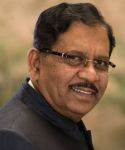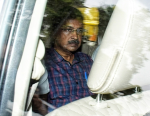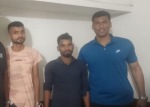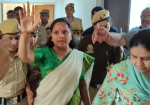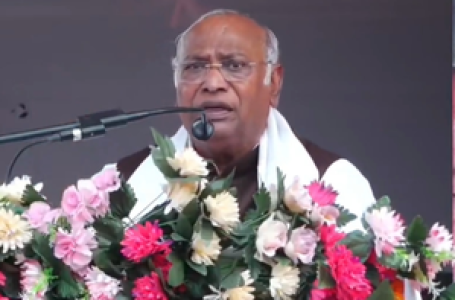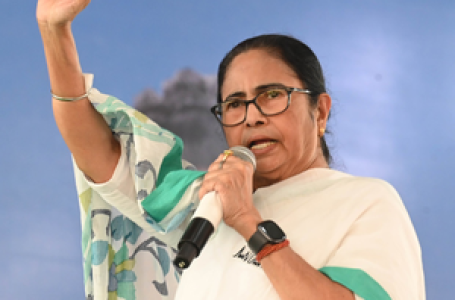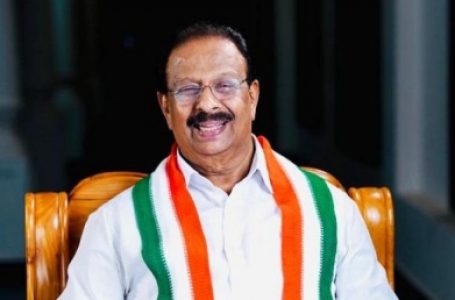By Dr. S Saraswathi
(Former Director, ICSSR, New Delhi)
Dec 18, 2018
Throughout the Assembly elections’ campaign in the five States, a dominating idea that circulated among voters and politicians was the inevitable impact of the results on the coming Lok Sabha election. Termed as “semi-final”, this election series served to intensify inter-party fight to a degree never before touched causing bitter verbal abuses and non-stop politicking of all issues making people wonder whether anything else is going on in the country.
Do State election results have a bearing on Parliament election? There can be no clear “yes” or “no” answer. Simultaneous election is not the rule in India. There are only a few national parties, whereas regional, State parties, and sub-State and district level political parties are growing in number. Will the proximity of the recent State polls to the scheduled Lok Sabha election in 2019 increase the said impact?
These questions must be definitely working in the minds of party leaders and the cadres. And so there are attempts to calculate Lok Sabha seats on the basis of Assembly results by extrapolation, search for reasons behind gain and loss, and evaluate the efficacy of campaign methods.
The election results, no doubt, give a momentum to the winners and a temporary setback to the losers, who may, however, rise with renewed vigour to avenge their defeat. The Congress, despite several defeats since 2014, maintains its electoral enthusiasm. It has experienced certain major splits in recent decades resulting in rise of strong rivals like TMC and NCP under strong leaders, but has managed to prevent a major vertical national split in recent years. Groupism prevails in State Congress organisations but not openly at the national level.
The recent victories are expected to boost the image of the Congress among its friends and bring back faith in its leadership. Its allies, who are like migratory birds, have now to think twice before changing side.
The BJP, with its indomitable courage and conviction, has increased its strength in the Lok Sabha from 2 in 1984 to become the majority party with 282 members in 2014. As it has already lost some allies like the TDP and PDP recently due to policy differences, it must become more self-reliant and has to concentrate on building its strength vigorously to secure its future however strong and reliable its present allies may be. Election results are likely to increase its attention to strengthen its roots which are already recognised as the best organised among political parties.
The Congress, which once rejected the very idea of alliance, agreed to descend to the level of being a junior partner to another smaller party in Karnataka as the only way of keeping the BJP away from government. Its earlier strategy was to give “outside support” to the government extended to Chandrasekhar of the National Front and HD Deve Gowda and I K Gujral of the United Front at the Centre. It was intended as a stop gap arrangement while waiting for an opportune movement to withdraw support and pull down the government. It is acceptable in politics though not for good governance.
Whether or not recent election results indicate the return of those days, conditions are such that BJP opponents presently seem to be united on a one-point programme of replacing the BJP government each for its own cause. It is negative politics that is played.
Today, there are far more parties well-versed in electoral manipulations than in the 1980s and 1990s, and many more State-level leaders nursing ambitions to play national politics. In this scenario, the Congress has to hold on firmly to its allies — a challenging job indeed in view of a parallel line of aspirants keen to form a non-BJP, non-Congress alliance. There is yet no sign of any dimming of this parallel line even after the installation of Congress governments in three States where elections were held.
Under the impact of State elections, no perceptible change has taken place in the prospects of forming a viable Mahagathbandhan (grand alliance) prior to election. Parties stick to their stand except for the DMK openly endorsing the leadership of the Congress. All principal constituent units of this alliance — NCP, TMC, SP, BSP, TDP, CPM — and others are of the view that it is premature to announce the leader or designate anyone as prime Minister. Evidently, winning three State elections is not enough to establish national leadership.
In considering post-poll Mahaghatbandhan, one cannot overlook what happened in choosing Chief Ministers from within a party in three States. If over 20 political parties have to accept a common leader, a towering personality recognised nationally and accepted by all allies is required in the absence of a party much ahead of others. In democratic politics, past glory is not a criterion for present leadership.
As an alternative, a collegiate system of equal partners may be evolved assuming that the partners have same policies, programmes, and priorities. No alliance can survive if a tug-of-war goes on within it. Parties that have no policy on national matters will become sleeping partners, which may be advantageous to the forward among them, but not to the nation.
There is no set pattern in the impact of results of Assembly election on Parliament elections in a State and vice versa. Knowledge about the relative powers of the State and Central governments is limited with the result that voters are largely unable to realise the worthlessness of the promises of some parties. What is possible under the Constitution and existing laws is also beyond the comprehension of average voters and some candidates also. It is the age of protests and demands. There are leaders and parties specialising in street-level politics which is easy to understand by the masses.
Recent State election was not really a test for the electoral strength of the Mahagathbandhan except in Telangana where two principal sponsors — the Congress and the TDP presented a united front, but faced utter defeat. The SP and BSP contested alone as pre-poll alliance was not possible. But, it was a test for forming the much-publicised Gathbandhan. It confirmed TDP’s steadfast appeal for non-BJP alliance leaving a gap in the place of leadership.
It was seen in Canada, that there was a pattern that linked elections at the federal and provincial levels, but incomplete. There was a theory that voters in Ontario Province were inclined to elect provincial governments of a political hue different from the one running the show at the national capital Ottawa.
Sentiment of anti-incumbency is a factor affecting the prospects of parties in India, but sometimes State-level anti-incumbency has no effect on national election. Ruling party in a State broadly enjoys some advantage in national election for some time. Surprisingly, observers have noted among voters some awareness to distinguish national and State election issues and definite idea in the matter of leadership.
Defying all surmises and conjectures, much depends on immediate issues more than long-term policies. This has stimulated hate speeches, repeated accusations, spread of fake news, and assumption of postures far from reality, which may become the style of electioneering in 2019. Here lies the biggest impact of the “semi-final”.( The writer is a (Former Director, ICSSR, New Delhi) —-INFA







